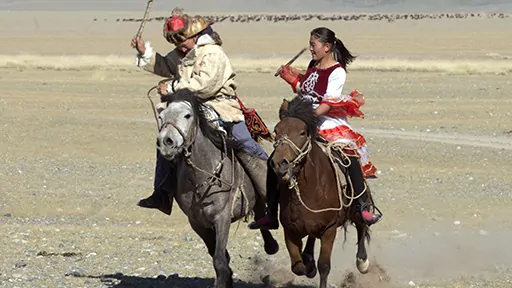Opinion Editorial Archive October, 2019: Meet the New Boss

There will be times when you have to meet the new boss. This may happen at your workplace if, for example, your old boss receives a promotion, resigns or retires. But there are other ways to "meet" the new boss. That happened recently when we met the new boss of the United Kingdom, Boris Johnson.
Pete Townshend wrote a song almost fifty years ago ending with the lyric: "Meet the new boss, same as the old boss." Someone recently commented about that lyric on YouTube: "The new boss will take power, but he may soon end up like the old boss, because of the means he used to achieve power."
Neither Townshend nor the commentator had a crystal ball, but if they had, they might well have seen Johnson when they gazed into it. (Townshend has said that the song was intended, in part at least, as a caution to politicians.) The old boss in Johnson's case was Theresa May. Like her, it appears almost certain now that he will not be able to keep his political promise of delivering Brexit by the end of this month: He has already started blaming others.
In the workplace, most people's boss is their manager. There is a fictional meme presently doing the rounds on social media that criticizes a corporate manager for making promises she is unable to keep and then blaming others. For a real example we need look only at last month's collapse of the formerly-British travel company Thomas Cook. Its old boss was recently busy blaming banks for the collapse over which he had presided.
At the heart of both examples is a common reality. No promises can fix a problem when the root cause of that problem is that the system from which it springs is itself broken. This is not to imply that parliamentary democracy or hierarchical corporate management structure are inherently flawed systems. Rather, they have become flawed in their present incarnations.
Townshend's song begins with the lyric: "We'll be fighting in the streets". Rebellion in the form of popular rioting has featured throughout history when a system of government was perceived not to be working. This is likely to be the next development in the UK, whose citizens are no strangers to having democracy rejected. In fact, its government released a document last month that anticipates rioting in the streets if the UK leaves the EU without a deal at the end of this month.
One British newspaper speculated, just in the last 48 hours, whether Johnson could then continue to govern the country from prison. That outcome would make the UK the world's first 'penalocracy.' If the UK does not leave the EU at the end of this month, Johnson himself may become the old boss.
There are cases of rebellion in the corporate world also, but in the forms of hostile takeover, board re-structuring and shareholder voting instead of rioting in the streets. For the individual, the usual form of rebellion is to seek employment elsewhere. In both examples, we can borrow another lyric from Townshend's song: "Then I'll get on my knees and pray we don't get fooled again." Inevitably, though, and also in both cases, even the most religious end up getting fooled again.
In this month's photo we see a Kazakh couple engaged in qyz quar. Also known as "kiss the girl," it is a traditional Kazakh sport. It is also the one day of the year when a Kazakh man can meet the new boss — his wife. She makes sure he knows she is the new boss by whipping him as he tries to outrun her on horseback. On all other days of the year his boss is an elder from his community.
There is a lesson for us here. Most indigenous peoples like the Kazakh have a societal governing principle that is millennia old. The boss in their communities is not an elected politician who has made false promises nor an incompetent manager promoted to the position for the wrong reasons. While there are cross-cultural variations in detail, indigenous elders are typically those who have the best knowledge of how to advance the next generation.
Our documentary feature, The Last Kazakh Nomads of Mongolia, is now available.
If you enjoyed reading this month's opinion editorial, please consider supporting independent, advertising-free journalism by buying us a coffee to help us cover the cost of hosting our web site. Please click on the link or scan the QR code. Thanks!

